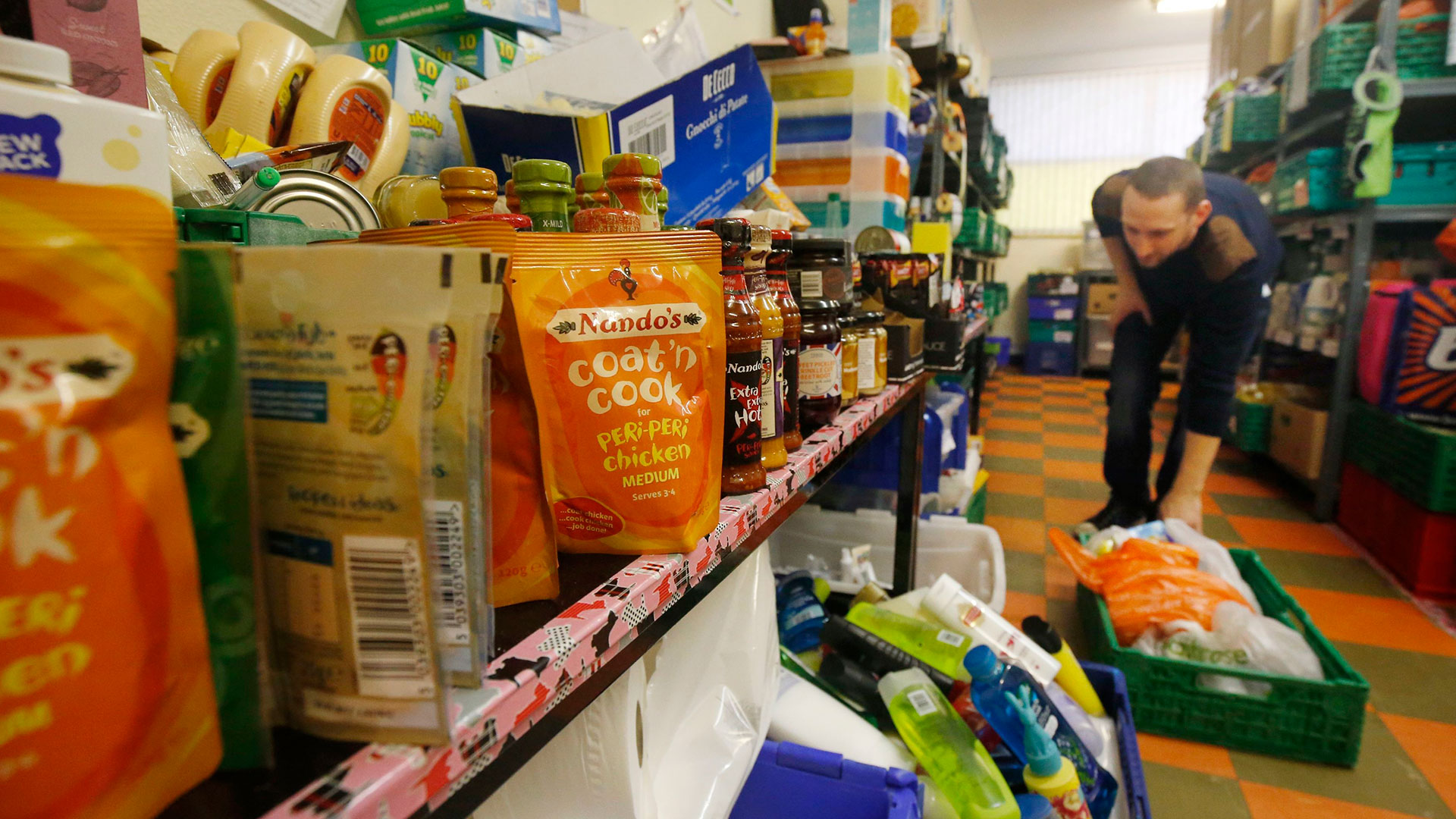“We don’t want to see anybody in this country having to use a food bank and we are looking at various ways in which we can better understand the drivers of food insecurity and that involves working with some of the providers of food banks and charities,” he replied.
Food charity Sustain UK estimates that 8.4 million people in the UK live in food poverty and charities have spoken out about skyrocketing demand during the pandemic.
In December 2019, fact-checker FullFact said “based on the figures we’ve seen” the claim that there are more food banks in the UK than McDonald’s was accurate.
Jamie Grier, director of external Affairs and income at Turn2us, told The Big Issue a formal Government review into the “sudden and extreme rise in foodbanks” was needed to “tackle the root causes firmly and efficiently”.
“It has been well recorded that foodbanks have exploded across Britain over the last decade, to the extent that there are now more food banks than McDonald’s,” he said.
Advertising helps fund Big Issue’s mission to end poverty
“Why? We know benefit delays and benefit changes have increased the pressure on households, but low wages, high housing costs and a decade of austerity have also played a significant part.”
The Government study on the drivers of food bank use was initially supposed to be published in October 2019 and in October 2020 MPs called on Department for Work and Pensions to publish the work “without delay”.
Quince told the committee there was “a little confusion” surrounding the report and that it would only entail a “literature review” based on “publicly available” data rather than in-depth research.
Quince said the Government would continue to work with food bank providers and promised new data would be published on food insecurity this month from the Family Resource Survey.
“Analysts in the department will of course continue to keep track and review all research on food banks and food insecurity,” he added.
Advertising helps fund Big Issue’s mission to end poverty
The minister was also asked whether the five-week wait for people claiming Universal Credit for the first time, which has been blamed for pushing people into poverty, was a factor in greater foodbank use.
“It’s a fair question and I think we have got to look at it all in the round and assess whether it is a matter of causation or correlation.
“Having visited food banks I know there are many many drivers of food bank use. I know this from some of the claimants or customers that we look after on Universal Credit.”
Quince also said it would be “premature” to announce another extension to the £20 increase to Universal Credit, which was prolonged to the end of September in last week’s Budget.
“We very much hope that the vaccine rollout will continue at pace and be as successful as it looks like it is going to be,” Quince said, when asked about the new September deadline.
Advertising helps fund Big Issue’s mission to end poverty
“But we don’t know about other things such as new variants. So I think it’s right that the Chancellor of the Exchequer will continue to look at the economic, societal and health picture going forward.
“[The Chancellor will] take a view at the end of the summer, or perhaps as we approach the last quarter of this year, on how best we continue to support some of the lowest paid, most vulnerable, poorest and most disadvantaged in our country.
“I think ensuring the Chancellor and the Treasury have the agility to do that without casting in stone the measures they want to take I think is actually very important.”









